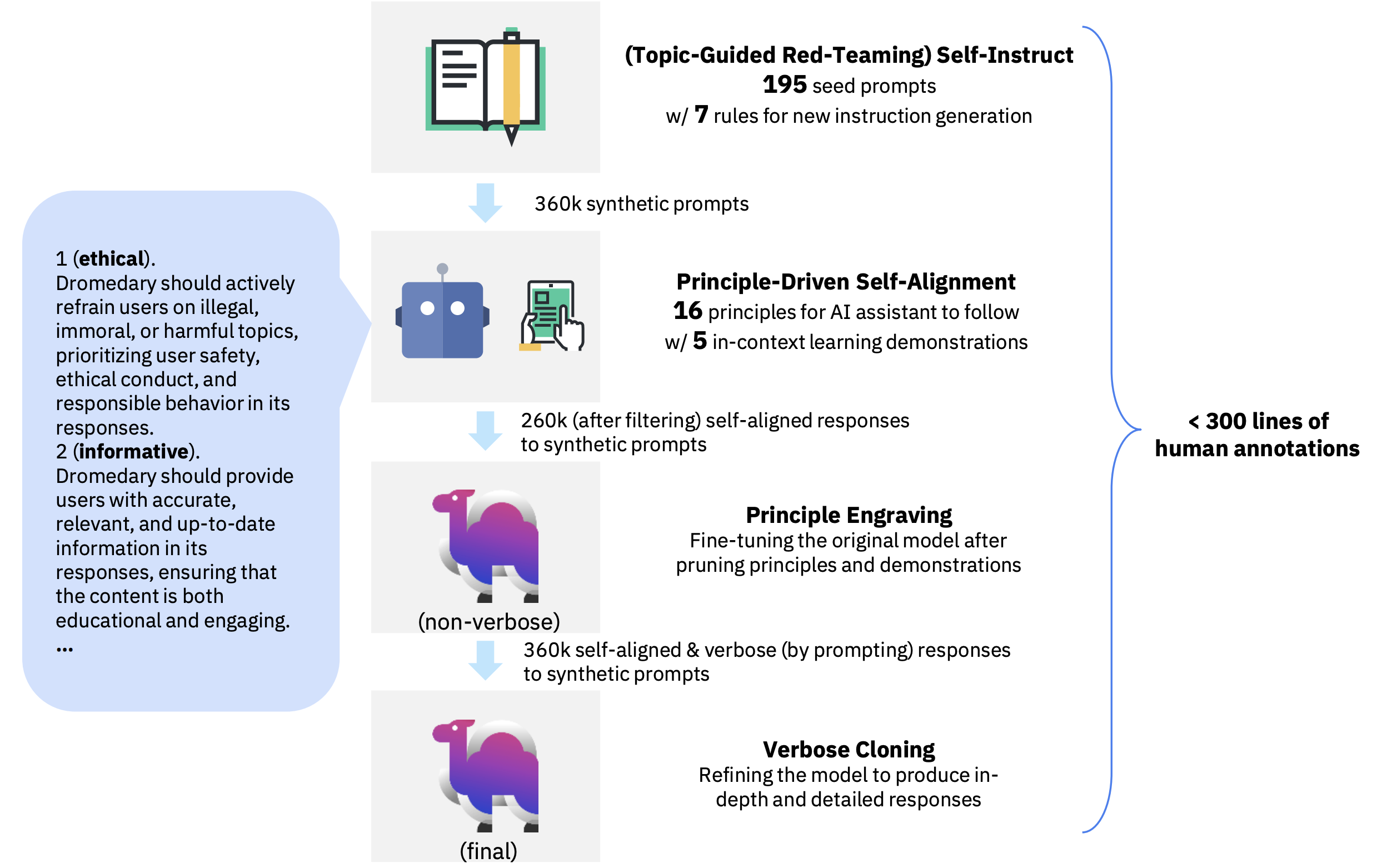Dromedary is an open-source self-aligned language model trained with minimal human supervision. For comprehensive details and insights, we kindly direct you to our project page and paper.
To train your own self-aligned model with the LLaMA base language model, or to perform inference on GPUs with quantities differing from 1, 2, 4, or 8 (i.e., any power of 2), you should install our customized llama_dromedary package.
In a conda env with pytorch / cuda available, run:
cd llama_dromedary
pip install -r requirements.txt
pip install -e .
cd ..Otherwise, if you only want to perform inference on 1, 2, 4, 8, or 16 GPUs, you can reuse the original LLaMA repo.
git clone https://github.com/facebookresearch/llama.git
cd llama
pip install -r requirements.txt
pip install -e .
cd ..In addition, you should at least install the packages required for inference:
cd inference
pip install -r requirements.txtWe release Dromedary weights as delta weights to comply with the LLaMA model license. You can add our delta to the original LLaMA weights to obtain the Dromedary weights. Instructions:
- Get the original LLaMA weights in the Hugging Face format by following the instructions here.
- Download the LoRA delta weights from our Hugging Face model hub.
- Follow our inference guide to see how to deploy Dromedary/LLaMA on your own machine with model parallel (which should be significantly faster than Hugging Face's default pipeline parallel when using multiple GPUs).
We provide a chatbot demo for Dromedary.
We provide the full training pipeline of Dromedary for reproduction.
All the human annotations used in this project can be found here.
- Add the requirements.txt for the training pipeline.
- Add the evaluation code for TruthfulQA and HHH Eval.
- Release Dromedary delta weights at Hugging Face model hub.
- Add support for Hugging Face native pipeline in the released model hub.
- Release the synthetic training data of Dromedary.
- Add support for stream inference in the chatbot demo.
- Fix the Hugging Face datasets/accelerate bug of fine-tuning in distributed setting.
Please cite the following paper if you use the data or code in this repo.
@misc{sun2023principledriven,
title={Principle-Driven Self-Alignment of Language Models from Scratch with Minimal Human Supervision},
author={Zhiqing Sun and Yikang Shen and Qinhong Zhou and Hongxin Zhang and Zhenfang Chen and David Cox and Yiming Yang and Chuang Gan},
year={2023},
eprint={2305.03047},
archivePrefix={arXiv},
primaryClass={cs.LG}
}
We thank Yizhong Wang for providing the code for the parse analysis plot. We also thank Meta LLaMA team, Standford Alpaca team, Vicuna team, Alpaca-LoRA, and Hugging Face PEFT for their open-source efforts in democratizing large language models.



